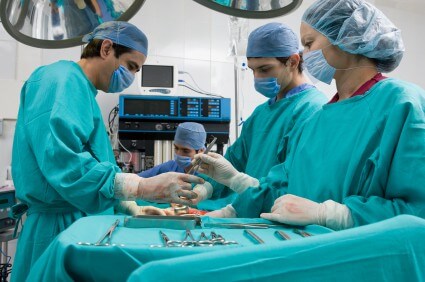Weight loss surgery is major surgery requiring a general anaesthetic, therefore it carries a risk of complications. If you are considering weight loss surgery and want to be more aware of the potential risks involved, then this is the article for you. We have categorised the risks into 5 categories:
Anaesthetic Risks
Anaesthesia is very safe in Australia. Despite people’s fears, patients do not die on the operating table, except in extremely unusual circumstances. The risk is so low it is very hard to measure, but is about 1 in 40,000 operations.

General Risks
There are always risks involved during and after surgery, please see below:
- Operations involve incisions, which may become infected or heal poorly.
- Hernias and other wound complications are the most common problems after gastric surgery.
- Operations also involve changes in bodily functions that put people at risk of chest infections (pneumonia), urine infections and blood clots.
These are the risks that pose the greatest threat to life after major surgery. There is also a risk of bleeding during the operation or immediately following it, so occasionally patients may require blood transfusions or even re-operation.
Specific Risks
These risks differ according to which operation you have. They may occur early or late following the procedure. For example, the most feared complication in operations that involve the bowel is a leak from the place where the bowel has been divided or joined. Although these joins are all made in a standard way that is repeated again and again from operation to operation, in about 0.2 per cent (1 in 500) people they fail to heal, allowing the contents of the gut to “spill out”. This causes infection and almost always requires another operation and significantly longer recovery time.
Other risks may be higher for some patients than others, so part of the process prior to surgery is to discuss these with your doctor. The list of rare complications is so long it would be almost impossible to tell you them all, but we can discuss the most common risks and those that are most relevant to you. These issues are best discussed at an individual doctor-to-patient level before you make a decision on having an operation.

Death
Just as driving to work involves the remote risk of a fatal car accident, any operation carries a small risk. Most people decide to undergo an operation with this expectation and accept the possibility that things may not go as planned. The risks depend on the type of surgery you are having and your age, weight and health, so your overall risk of death may vary from one in 200 to one in 3000.
Disability
While recovering from an operation a person is, in effect, disabled. If they have complications the duration of their disability can be prolonged. Some disabilities may be permanent and some permanent disabilities occur even if no obvious complications have arisen. This is because the effects of any operation vary from person to person. As these operations affect the way your body functions, if a complication affects your quality of life it may be difficult to remedy.
Disability may take the form of prolonged tiredness, abdominal pain, difficulty eating, vomiting, or nutritional deficiencies. Most of the operations for obesity are to some extent reversible or modifiable, but attempting to fix or reverse the operation may not fix an established problem. What makes these risks acceptable is the fact that obesity causes disability, psychological distress and risk to life.
If you are considering weight loss surgery as an option and would like to discuss your personal potential risks, please book an appointment online or call our clinic to have a consultation with one of our specialists who will be able to give you more information relating to you specifically. You can call us on 02 9553 1120 or use the Hotdoc link.


0 Comments